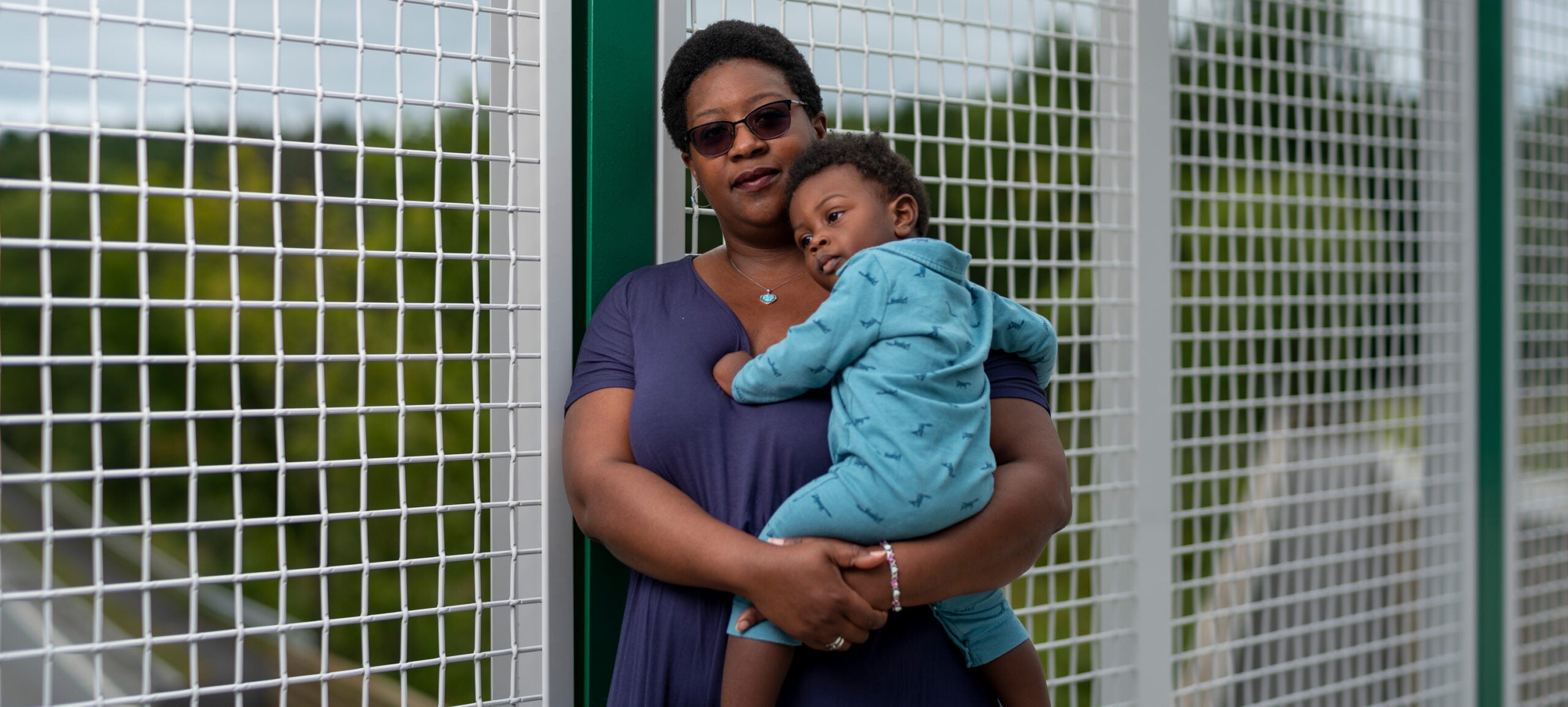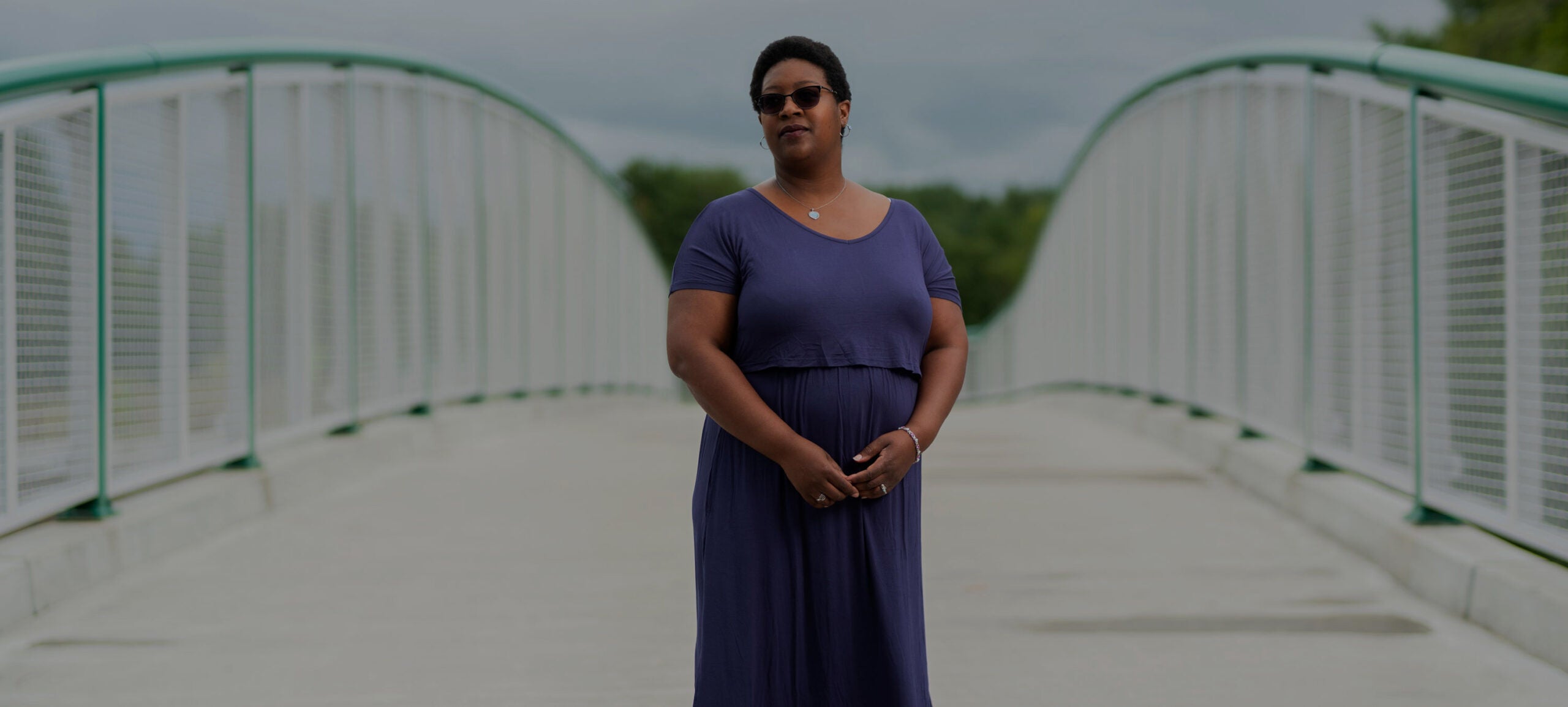This is Race and Medicine, a series dedicated to unearthing the uncomfortable and sometimes life-threatening truth about racism in healthcare. By highlighting the experiences of Black people and honoring their health journeys, we look to a future where medical racism is a thing of the past.
Being a doctor is a unique role. It involves knowing some of the most intimate things about a person, but not really knowing them as a person at all.
The patient’s job is to be transparent about their health, and the doctor’s job is to listen objectively to symptoms and fears to choose the most logical diagnosis.
Racial bias in the medical field disrupts the trust needed for this relationship to function.
A biased doctor might disbelieve symptoms or their severity and misdiagnose a condition.
A patient may come to mistrust the doctor, not attend appointments, not follow instructions, or stop sharing key information because history tells them they aren’t taken seriously.
Reducing bias is critical to eliminating health disparities, especially for Black women.
My run-in with bias
Several years ago, I experienced medical bias when I started having headaches multiple times per week. I had had migraine before, but this was different.
I felt like I was dragging my body through heavy resistance, like encountering an undertow. I was losing weight. No matter how much water I drank, I was always thirsty and rushing to the bathroom around the clock.
It seemed I could never eat enough to feel full. When I tried to avoid overeating, I became fatigued, my vision blurred, and I had so much trouble focusing it was hard to drive.
My primary care physician (PCP) cut me off when I tried to explain.
She congratulated me for losing weight and said I just needed to let my brain adjust to food deprivation. When I explained I wasn’t dieting, she sent me to a headache specialist.
The headache specialist prescribed a medication that didn’t help. I knew they weren’t migraine headaches, but no one listened, even as my fatigue and disorientation increased.
Once, I even had trouble finding my own house.
By my sixth visit, the symptoms were massively disrupting my life. I wondered if I had type 2 diabetes because of family history. My symptoms seemed to match.
I knew of a test called HbA1c that provides a snapshot of blood sugar levels. I insisted on being tested. My doctor said she would order labs based on my demographics.
I thought I was finally getting somewhere — but when the receptionist at the lab printed the list of tests, HbA1c wasn’t present. Instead, it was tests for common STDs.
I was humiliated, overwhelmed, and no closer to having answers. In the parking lot, I broke down and cried.
Subtle racism
When Black people share instances of racism, it’s often disregarded as playing the ‘race card’ or as an isolated incident. It’s much more difficult to explain subtle racism than it is to explain blatant acts like burning crosses and racial slurs.
However, numerous case studies have shown patterns like this to be a systemic phenomenon.
For example, a
This study shows the reality of racial bias. It explains in numbers why Black patients often report feeling unsupported and mistrustful of their doctors.
Medical institutions aren’t the only ones where implicit bias and racism affect the relationships required to provide quality care and service.
For Black people, the inability to trust whether someone sees you as a human being affects relationships with doctors, teachers, and other authority figures like the police.
Aging too fast
A
According to the study, Black women are biologically 7.5 years older than white women who are the same chronological age, largely due to the stress of racism.
Substandard care
Receiving substandard medical care is dehumanizing. It can also jeopardize our lives and those of our loved ones.
I could have crashed while driving to get my children or passed out while cooking and burned my home down, all because my doctor couldn’t see beyond her biases to properly diagnose me.
And I’m not alone.
According to the
That means Black women are 3.25 times more likely to die during pregnancy than white women.
And the infant mortality rate for Black infants is reported at 2.3 times that of non-Black infants.
Due to the historical vestiges of redlining, or the practice of excluding entire geographic areas from receiving resources, many Black, indigenous, and people of color (BIPOC) in urban and rural areas live in medically underserved areas (MUAs) and lack access to consistent, quality healthcare.
Black women are 3.25 times more likely to die during pregnancy than white women.
The cost of bias
Tye’sha Fluker, 35, of Boston, Massachusetts spent more than a year seeking diagnosis and treatment for pain in her stomach.
She says she will never forget the dispassionate doctor asking after multiple visits, “Everything shows that you are healthy. What do you want me to do?”
The doctor insisted Fluker’s symptoms had to be psychological in origin and prescribed anxiety medication. Fluker followed the medical advice to no avail.
Over the course of time, her symptoms of nausea, vomiting, and pain persisted.
One day, the symptoms intensified so much that Fluker’s sister rushed her to the hospital. In the ER, she was in so much pain and so depleted that she passed out before she could check in.
After running tests, doctors determined that she had an extreme overgrowth of H. Pylori bacteria in her stomach, causing an ulcer.
This could have been a minor issue if symptoms had been investigated when Fluker first reported them. Instead, she had to be hospitalized for several days due to the damage done by the bacteria and ulcer.
I have to wonder: If that doctor had received training on medical bias and how Black people’s pain is often ignored, would Fluker have received treatment sooner?
Dr. Monya De, an internal medicine specialist, says that she never learned about bias during medical school. She wasn’t introduced to the term until she attended a conference later in her career.
De’s also seen doctors provide lower quality care due to their biases.
She once observed a neurologist spending drastically more time with a pretty, young woman than with an older, non-English speaking woman, even though both presented with equally concerning symptoms.
De is concerned with the lack of quality time patients get with their doctors as well.
“Community clinics and federally-qualified health centers who take Medicaid (some, but not all) will take new patients with multiple complaints and shove them into a 15-minute appointment. This disproportionately affects people of color,” she says.
Systemic racism and inequality produce lower quality healthcare when patients aren’t given enough time to discuss their symptoms. On top of that, doctors may not be able to truly hear the issues through the filter of their biases.
Psychologist and researcher Cleopatra Abdou Kamperveen, PhD, emphasizes the reality of medical bias.
“We simply cannot afford to overlook the human and financial costs of unconscious bias at work in the healthcare system,” says Kamperveen. “This is not a matter of opinion: these are real phenomena that have been observed using the scientific method. These impacts are real, and they are empirically and practically significant.”
Kamperveen designed a research-based training to teach healthcare providers how to check their own biases. In the training, doctors learn how to prevent prejudices from turning into poor treatment decisions.
According to Kamperveen, these decisions “harm people with marginalized identities every single day — the type of poor healthcare decisions that led to my 27-year-old mother dying in childbirth. This is just one of the many ways prejudice, if acted upon, kills.”

Photography by Elias Williams
Cutting off bias at the root
Although uprooting medical bias is a large undertaking, it can begin with simple actions.
First, doctors need to affirm the voices of women of color. It’s essential to not dismiss feelings, concerns, or experiences as isolated incidents.
Second, medical schools need to begin including anti-bias training as part of their curriculum. Exposure to the concept can help raise awareness and allow medical professionals to avoid it in their own practice.
Finally, healthcare organizations should conduct internal audits to objectively track and avoid medical bias. The internal audit could utilize demographic and health information to track symptom resolution.
Data like this would show unexplained differences based on race, gender, or weight in terms of patient health outcomes.
Internal audits can also focus on investigating complaints and why patients leave a medical practice.
Audits can give an accurate picture of the quality of care provided by an organization. Once an issue is identified in an audit, providers can create solutions to get back on track.
Believing Black women
“Black women are not crazy. They know their bodies and when something is not right,” says Fluker.
“I wish I’d known about this issue prior to my experience…” she says. “I would have done more research instead of letting someone else’s knowledge sway what I knew: that I was in pain and something was wrong.”
As for me, I found a new PCP after crying in the parking lot that day when I was issued STD tests instead of HbA1c.
At my appointment, my blood sugar was over 550. I was heading toward a diabetic coma. I recall the doctor remarking that she didn’t know how I was still standing.
I left the office diagnosed with late onset type 1 diabetes and a plan for my care that my new doctor and I formed together. I was listened to and treated like a human being with valid concerns.
Within a month, my headaches were diminished, my blood sugar was stabilized, and all the other frightening symptoms were gone.
Unchecked bias reduced my quality of life in quantifiable and emotionally devastating ways for months.
Black women and their allies need to know there are solutions to medical bias. Our very lives depend on it.
Julie Pierce Onos has been published in Healthline, Temblor, and Yoga Journal as well as providing in-house writing for financial companies. A Yale University graduate, Julie is passionate about organizational and personal improvement. She brings over 15 years of experience as a writer, instructor, and organization development expert in the Boston area.

